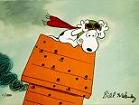mdiehl
Posts: 5998
Joined: 10/21/2000
Status: offline

|
quote:
There is absolutely no substitute for combat experience, as any veteran will tell you.
Any veteran would be wrong.
quote:
Training is vital, and can make a massive difference.
Training makes all the difference. Good examples of units functioning at levels equivalent to veteran units are legion, and those examples are pretty much all extensively trained. Units that fared poorly tend to be undertrained.
quote:
And there are some things you can only learn in combat, and not in training.
That is not the premise of the US Top Gun program. In general, vis a vis air to air combat, the only thing you can learn by experience that you can't learn from training is how to escape a crippled aircraft. And, of course, how to die.
quote:
Yes, the IJN pilots sweeped the floor with Allied pilots in the early months of the war.
NO, actually, they did not. Objectively, the USN in CV vs CV engagements had two about 1.8 victories against A6Ms for each F4F shot down. The AVG had a still better score, albeit against IJAAF pilots in Oscars rather than IJN pilots in Zekes. The only areas of the Pacific where the Japanese held a substantial edge were so far out on the logistical tail that the Allies lacked secure bases. The instant the Japanese went up against logistically well supported positions, they lost. Repeatedly.
quote:
This was because of the massive differential in experience - IJN pilots had 1000 flight hours compared to USAAF pilots with 200-300 hours, for example.
That is not correct.
quote:
But as soon as Allied pilots were exposed to combat - those that survived learnt the lessons that could ONLY be learnt when facing hostiles, and they adapted. Prolonged exposure to combat made the Allied pilots catch up very quickly to the Japanese pilots.
That is also not correct.
quote:
The same applies to JG 52. Most of those pilots had combat experience in the Spanish Civil War. They then flew against inexperienced Polish pilots in September 1939, and then in May 1940 British and French pilots were almost no match.
That is true for combat vs Polish units, but then the Luftwaffe was operating both better a.c. and operating against units that were all logistically isolated. Vis a vis UK units, that is incorrect.
quote:
But the Battle of Britain was one of attrition that broke the back of the Luftwaffe's fighter corps. Too many experienced pilots were lost, either killed or captured when having to bail out over enemy territory.
Well, to be sure attrition describes the BoB. But the Germans were losing pilots and planes faster than the UK was losing them. It was not a battle in which, as you seem to believe, the UK fielded superior numbers of inferior pilots, and lost more a.c. but wore the Germans down. It was a battle in which the UK was most of the time outnumbered, but had a logistically well supported position from which they were able to inflict greater losses on the Luftwaffe than they sustained. The Germans lost about 3 a.c. for each British plane shot down during the BoB.
Logistics made the difference in most of these early war Axis victories. The Axis lost, regardless of the veteran status of their fighters, the instant they (Japanese or German) encountered ordinary non-veteran allied aircrews operating from well supported positions.
_____________________________
Show me a fellow who rejects statistical analysis a priori and I'll show you a fellow who has no knowledge of statistics.
Didn't we have this conversation already?
|
 Printable Version
Printable Version



























 New Messages
New Messages No New Messages
No New Messages Hot Topic w/ New Messages
Hot Topic w/ New Messages Hot Topic w/o New Messages
Hot Topic w/o New Messages Locked w/ New Messages
Locked w/ New Messages Locked w/o New Messages
Locked w/o New Messages Post New Thread
Post New Thread